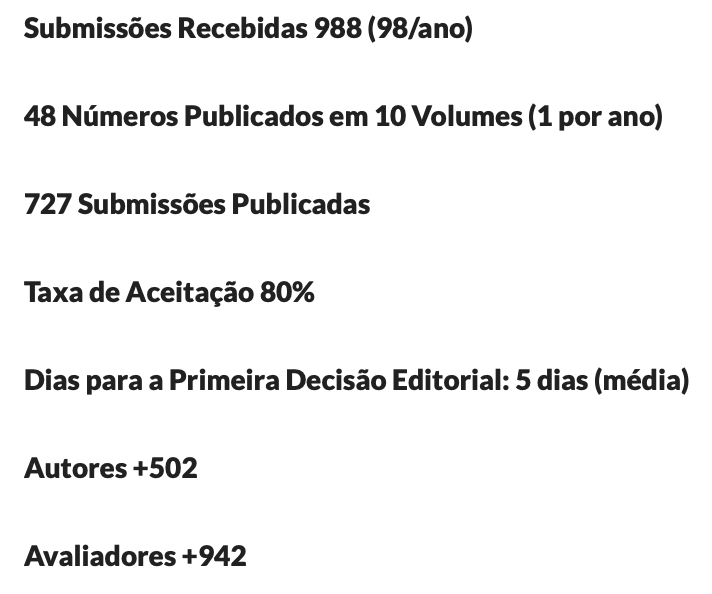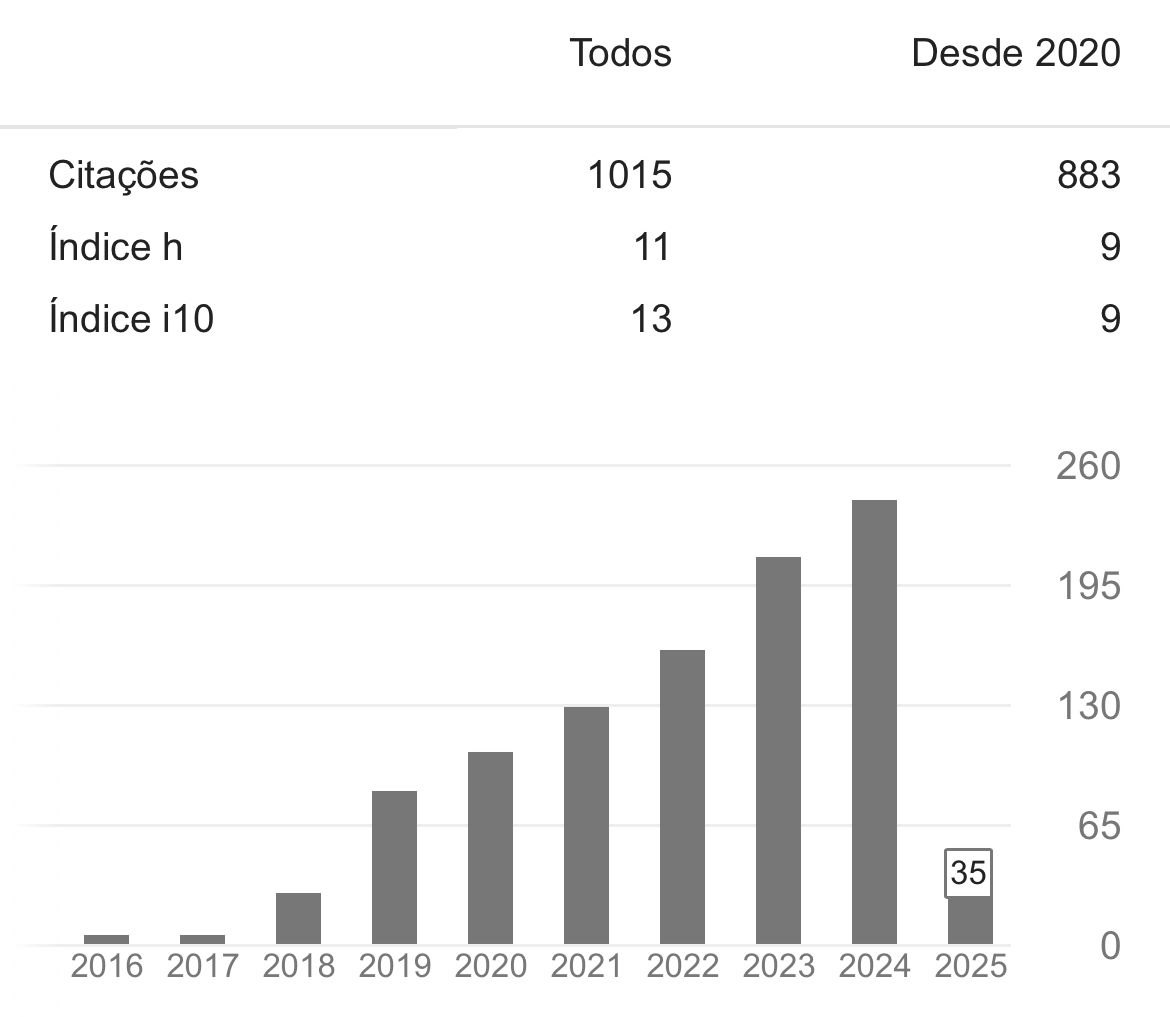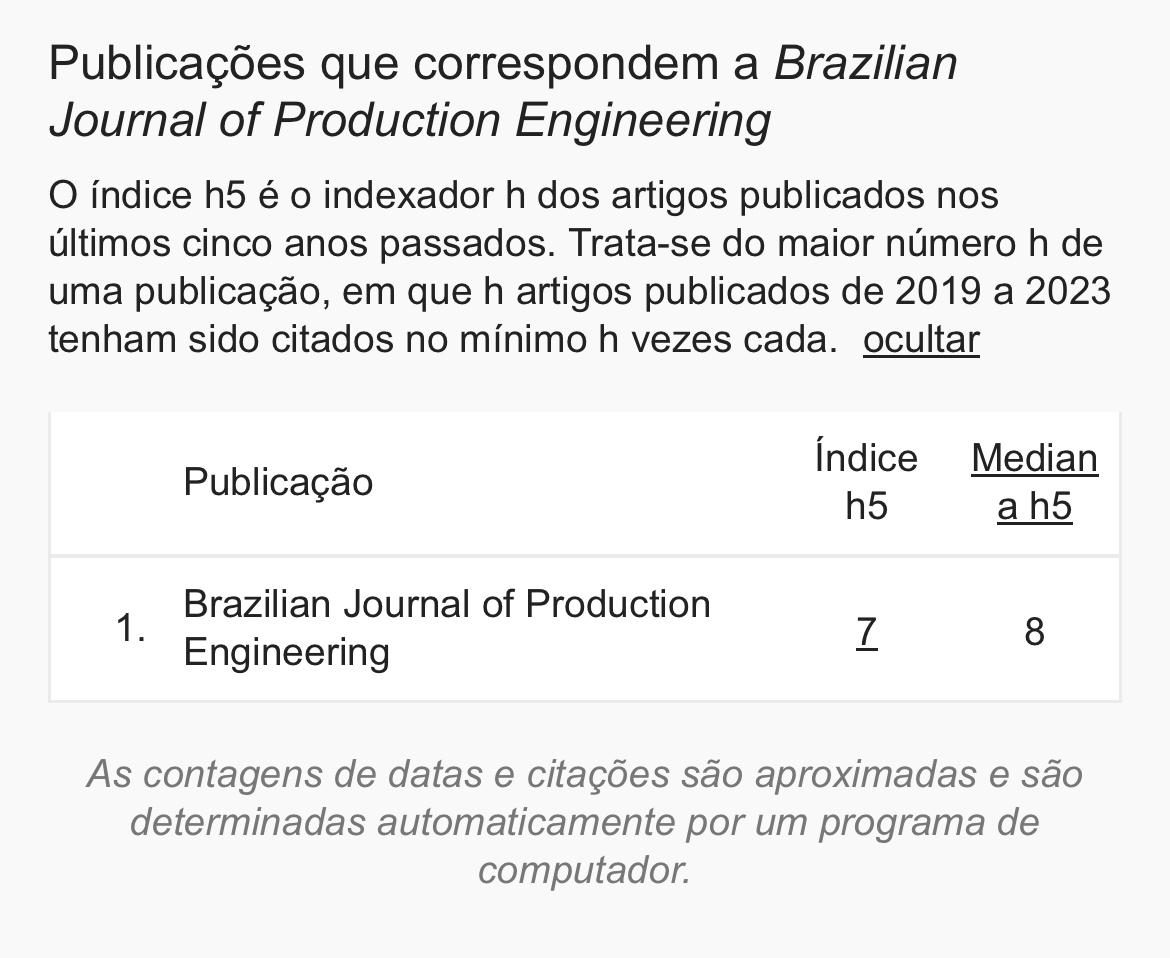Validity and reliability analysis of the Servqual model adapted to supermarket retail
DOI:
https://doi.org/10.47456/bjpe.v6i7.33532Keywords:
Quality in services, supermarkets, validity, reliabilityAbstract
The instruments used to measure the quality of services provided by a given organization must have favorable properties of reliability and validity, to justify the confidence that is placed in the results they produce. In this sense, this study aimed to present the applicability of the statistical analysis to investigate the validity and reliability properties of the questionnaire provided to evaluate the quality of the services provided by a supermarket located in the city of Aracaju/SE. Based on the scores of 385 consumers, Multiple Linear Regression was applied to verify the validity of the questionnaire, while Cronbach's alpha to analyze the reliability of the questionnaire. In this analysis, it was observed that 78.8% of the variations in the degree of expectation and 80.3% of the variations in the degree of performance reported by consumers can be explained by the variation of the scores obtained in the evaluated dimensions. For the measurement of expectation, the alpha value was 0.87 and for the measurement of performance, it was 0.86. These values were considered satisfactory since the previous coefficients were above the thresholds recommended in the specialized literature. Thus, it is suggested that the questionnaire used to assess the quality of services in the supermarket was consistent and accurate
Downloads
References
Adeniran, A. O. (2019). Application of Likert Scale’s Type and Cronbach’s Alpha Analysis in an Airport Perception Study. Scholar Journal of Applied Sciences and Research, 2(4), 1-5.
Álvarez-García, J., et al., (2019). Quality in Customer Service and Its Relationship with Satisfaction: An Innovation and Competitiveness Tool in Sport and Health Centers. International journal of environmental research and public health, 16(20), 39-42.
Allen, M. J., & Yen, W. M. (2003). Introduction to measurement theory. WaveLand Press.
Almeida, D., Santos, M. A. R., & Costa. A. F. B. Aplicação do coeficiente alfa de Cronbach nos resultados de um questionário para avaliação de desempenho da saúde pública. In: XXX Encontro Nacional de Engenharia de Produção, 2010. Anais do...São Paulo. Disponível: http://www.abepro.org.br/biblioteca/enegep2010_TN_STO_131_840_16412.pdf Acesso: 12 out. 2020.
Barbetta, P. A. (2002). Estatística aplicada às ciências sociais. 5. ed. Florianópolis: UFSC.
Bittencourt, H. R., et al., (2011). Desenvolvimento e validação de um instrumento para avaliação de disciplinas na educação superior. Est. Aval. Educação. São Paulo, 22(48) 91-114.
Bland, J. M., & Altman, D. G. (1997). Cronbach´s alpha. British Medical Journal, 19(1), 314-572.
Carmines, E. G., & Zeller, R. A. (1979). Reliability and validity assessment. Sage University paper.
Corrar, L. J.; Paulo, E., & Dias Filho, J. M. (2007). Análise multivariada. FIPECAFI: Atlas.
Crocker, L., & Algina, J. (2006). Introduction to classical & modern test theory. Ed. Thonson, 571 p.
Cronbach, L. J. (1951). Coefficient alpha and the internal structure of tests. Psychometrika, 16(3), 297-334.
IBGE (2010). Censo demográficos.
Freitas, A. L. P., & Rodrigues, S. G. (2005). A avaliação da confiabilidade de questionário: uma análise utilizando o coeficiente alfa de Cronbach. In: XII SIMPEP. Anais do…Bauru, SP.
Freitas, A. L. P., Bolsanello, F. M. C., & Viana, N. R. N. G. (2008). Avaliação da qualidade de serviços de uma biblioteca universitária: um estudo de caso utilizando o modelo Servqual. Ciência da Informação, 37(3), 88-102.
Freitas, A. L. P., & Freitas Neto, M. M. (2017). Assessing the service quality in Software-as-a-Service from the customers’ perspective: a methodological approach and case of use. Production, 27, e20170020.
Freguson, J. M., & Zawacki, R. A. (1993). Service quality: A critical success factor for IS organizations. Information Strategy: The Executive's Journal, 9(2), 24-30.
Ghotbabadi, A. R., Feiz, S., & Baharun, R. (2015). Service Quality Measurements: A Review. International Journal of Academic Research in Business and Social Sciences, 5(2), 267-286.
Hair, J. F., et al., (2019). Multivariate data analysis, 8. ed. London, Unites Kingdom: Cengage Learning.
Hair, J. F. (1998). Multivariate data analysis, 5. ed. Englewood Cli's: Prentice-Hall.
Hayes, B. E. (1995). Medindo a satisfação do cliente: desenvolvimento e uso de questionários. Quality Mark, 228 p.
Hora, H. R. M., Monteiro, G. T. R., & Arica, J. (2010). Confiabilidade em Questionários para Qualidade: Um estudo com o Coeficiente Alfa de Cronbach. Produto & Produção, 11(2), 85-103.
Jan, S., & Shieh, G. (2019). Sample size calculations for model validation in linear regression analysis. BMC Medical Research Methodology, 19(54), 1-9.
Kasznar, I. K., & Golçaves, B. M. L. Regressão múltipla: uma digressão sobre seus usos. Disponível: http://www.ibci.com.br/Regressao_Multipla.pdf Acesso: 01 ago 2011.
Kotler, P., & Armstrong, G. (1998). Princípios de Marketing. Rio de Janeiro: 7ª ed. Prentice-All.
Ko, C. H., & Chou, C. M. (2020). Apply the SERVQUAL Instrument to Measure Service Quality for the Adaptation of ICT Technologies: A Case Study of Nursing Homes in Taiwan. Healthcare, 8(2), 108-124.
Krus, D. J., & Helmstadter, G. C. (1993). The problem of negative reliabilities. Educational and Psychological Measurement, 53(1), 643-650.
Malhotra, N. K. (2012). Pesquisa de Marketing. 6ª ed. Bookman.
Nichols, D. P. My Coefficient α is Negative, SPSS Keywords. Disponível: http://www.ats.ucla.edu/STAT/SPSS/library/negalfa.htm Acesso: 20 set. 2020.
Parasuraman, A., Zeithaml, V. A., & Berry, L. L. (1985). A conceptual model of service quality and its implications for future research. Journal of Marketing, 49(1), 41-50.
Parasuraman, A., Zeithaml, V. A., & Berry, L. L. (1990). An empirical test of the extended gaps model of service quality. Marketing Science Institute, 1(1), 90-122.
Bolarinwa, O. A. (2015). Principles and methods of validity and reliability testing of questionnaires used in social and health science researches. Niger Postgraduate Medical Journal, 22(1), 195-201.
Roy, S., Sreejesh, S., & Bhatia. (2019). S. Service quality versus service experience: An empirical examination of the consequential effects in B2B services. Industrial Marketing Management, 82(1), 52-69.
Santos, J. W. (2016). Proposição de um modelo multifatorial para mensuração da satisfação de consumidores do varejo supermercadista. Revista Gestão Industrial, 12(3), 198-215.
Santos, J. W. Um modelo multifatorial para medir a satisfação dos consumidores de supermercados. In: Simpósio de engenharia de produção de Sergipe, 2016. Anais do... São Cristóvão. Disponível: https://ri.ufs.br/bitstream/riufs/7696/2/ModeloMultifatorialSupermercados.pdf Acesso: 24 de set. 2020.
Santos, J. W., Gomes, K. T. S., & Vasconcelos, C. R. Aplicação de métodos de controle de estoque no varejo supermercadista. In: Simpósio de engenharia de produção de Sergipe, 2017. Anais do... São Cristóvão. Disponível: http://simprod.ufs.br/pagina/21037 Acesso: 25 set. 2020.
Santos, J. W., et al., Avaliação da qualidade dos serviços prestados em um supermercado sob à ótica do cliente: uma abordagem exploratória. In: Simpósio de engenharia de produção de Sergipe, 2015. Anais do... São Cristóvão. Disponível: https://ri.ufs.br/bitstream/riufs/8270/2/QualidadeServicosSupermecadoCliente.pdf Acesso: 25 set. 2020.
Schneider, B., & White, S. (2004). Service quality: Research perspectives. California: Sage Publications.
Streiner, D. L. (2003). Being inconsistent about consistency: when coefficient alpha does and doesn´t matter. Journal of Personality Assessment, 80(1), 217-222.
Silva, E. L., & Menezes, E. M. (2001). Metodologia da pesquisa e elaboração de dissertação. Florianópolis.
Taber, K. S. (2018). The Use of Cronbach’s Alpha When Developing and Reporting Research Instruments in Science Education. Research in Science Education, 48(1), 1273–1296.
Downloads
Published
How to Cite
Issue
Section
License
Copyright (c) 2020 Brazilian Journal of Production Engineering - BJPE

This work is licensed under a Creative Commons Attribution-NonCommercial-ShareAlike 4.0 International License.

















































































